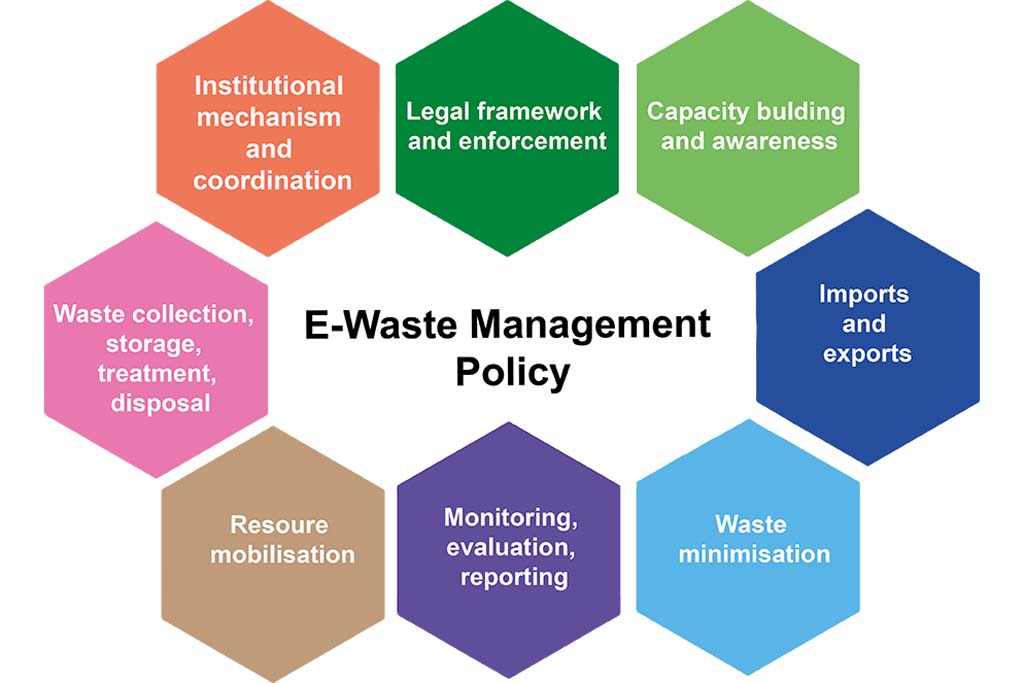E-waste policy & regulations
E-waste policy refers to the laws, regulations, and guidelines that govern the proper management and disposal of electronic waste. E-waste policies can include a range of measures, such as:
Extended producer responsibility (EPR) laws, which require manufacturers to take responsibility for the disposal of their products at the end of their life cycle.
Recycling targets and standards, which establish goals for the amount of e-waste that should be collected and recycled, and set standards for the safe and responsible disposal of e-waste.
Bans or restrictions on the export of e-waste to developing countries, where it is often processed under unsafe and unregulated conditions.
Incentives for e-waste recycling and reuse, such as tax breaks or subsidies for businesses that engage in responsible e-waste management practices.
Public awareness and education campaigns, which help to inform individuals and organizations about the importance of responsible e-waste management and encourage them to take action.
E-waste policies can be implemented at the national, regional, or local level, and can vary depending on the specific needs and resources of a particular jurisdiction. By implementing effective e-waste policies, governments can help to promote sustainable and responsible practices for managing electronic waste, while also protecting public health and the environment.
 12
12
Post Your Comment Here